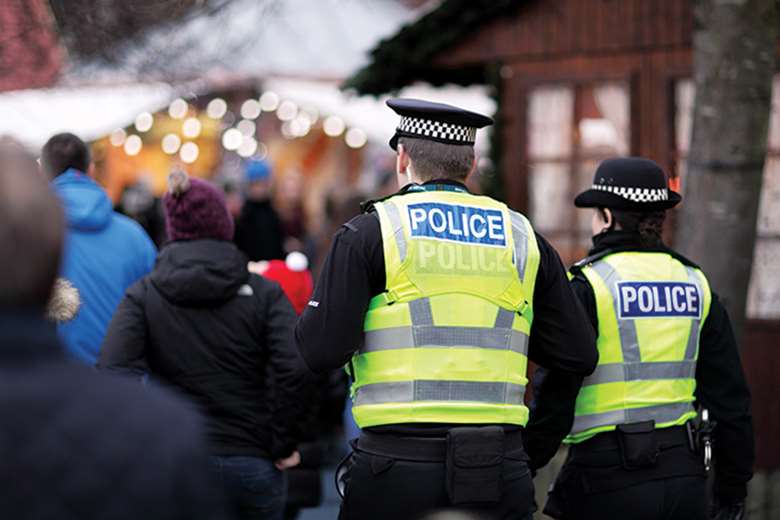Media focus on knife crime 'fuelling excessive arrests of black children'
Joe Lepper
Monday, September 10, 2018
An increase in media coverage of knife crime and gang issues has contributed to high levels of arrests of black, Asian and ethnic minority (BAME) children and their disproportional representation in youth custody, a charity has said.

The Howard League for Penal Reform said that while the overall number of child arrests have fallen for a seventh year in a row, BAME children continue to be treated unequally.
The charity said its data on child arrests, collected from all forces across England, shows that 26 per cent of child arrests in 2017 were of children from BAME backgrounds despite the fact that this group of children make up only 18 per cent of the 10- to 17-year-old general child population.
This disproportionality continues into youth custody. In June this year, Ministry of Justice statistics revealed that almost half (48.1 per cent) of the 940 children in custody as of April were BAME.
The Howard League said it is vital that police forces, as the gatekeepers to the criminal justice system, address this inequality.
"One of the factors driving the high levels of arrests of BAME children is the increased media coverage around knife crime and gang involvement, much of which has been focused on children from non-white backgrounds," a briefing on child arrests in 2017 published by the Howard League states.
"It is important that authorities do not respond to this coverage in a knee-jerk fashion and rush into responses and policies that cause children to be swept up unnecessarily into the criminal justice system."
- Analysis: Tackling race 'bias' in youth justice
- Serious Violence Strategy: experts advocate earlier interventions
Last year an independent review into the treatment of BAME people in the criminal justice system by Labour MP David Lammy said that culturally sensitive community courts, with a focus on parenting, could help address the disproportionately high level of arrests and convictions of BAME children.
The move would see youth offender panels replaced with local justice panels, which take direct inspiration from Rangatahi courts in Maori communities in New Zealand.
The Howard League said that arrests of all children can be reduced by introducing voluntary attendance, whereby children are interviewed at a pre-arranged time. Already used by some forces, the charity said the approach can increase the chance of no further action.
The Howard League said it is also concerned about continuing high level of arrests of children in residential care.
The charity launched a campaign in 2016 to curb unnecessary police call outs to children's homes. It urges more forces to follow the lead of Surrey Police, which has trained staff in children's homes about restorative approaches to dealing with incidents. This has led to a reduction in call outs and contributed to an 18 per cent fall in child arrests between 2016 and 2017.
Another vulnerable group of children who are being unfairly criminalised, according to the Howard League, are those being used by drug dealers through so called "county line" drug distribution networks between urban and rural areas.
"Police officers need to be educated so that victims of child criminal exploitation can be identified early and protected rather than criminalised," says the Howard League's briefing.
The Howard League figures show that arrests of children overall have been cut by more than two thirds (68 per cent) in the last seven years from 245,763 in 2010 to 79,012 in 2017.
Between 2016 and 2017 the number of child arrests fell by 8,513. Of those children arrested in 2017, 616 were of primary school age and 12,495 were girls.
Olivia Pinkney, National Police Chiefs' Council lead for children and young people, said: "The continued drop in child arrests across the country is welcome. While there will always be situations in which arrest is the best option to keep the public safe, police forces are continuing to work to decrease this wherever possible.
"We are increasingly working with other agencies to ensure that vulnerable children being exploited receive the right support and are treated as victims, not criminals."




